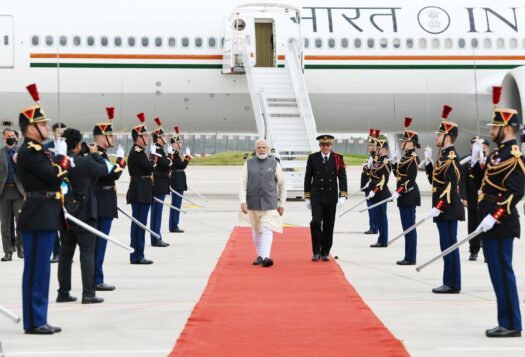
The Iranian nuclear deal has managed to alter some noteworthy strategic equations in West Asia. It came as a big surprise when Saudi Arabia and Israel started drawing closer to each other due to common concerns over the deal. Even as the landmark agreement fructified on July 14, 2015, Israel displayed its displeasure, calling it “one of the darkest days in world history.” Saudi officials were quoted as saying that the pact would make Iran a “more dangerous part of the world.”
Saudi Arabia, an Arab state, and Israel, a Jewish and non-Arab state, have rarely been on good terms. In fact, Israel has always been apprehensive of the Arab states – a major reason why it developed closer ties with Iran (The Saudis and Israelis were also on opposite sides during the Iran-Iraq war, when Saudi Arabia backed Saddam Hussein’s Iraq while Israel supported Iran).
However, Israel’s relations with Iran started to become bitter following the Iranian revolution. Tehran and Riyadh also do not share good relations, as Sunni Saudi Arabia and Shia Iran compete for regional hegemony in West Asia. Saudis have also been worried that a United States-Iran detente could dislodge them as the main U.S. ally in the Persian Gulf.
In recent times, the two powers in West Asia have sought to resolve their differences, in the wake of Iran’s continued efforts for nuclear weapons despite international sanctions. Both states have been plagued by apprehensions over President Obama’s policy towards the Iranian nuclear program. They do not trust that Iran’s program is meant to meet the state’s energy requirements, but rather to produce nuclear weapons, and worry that Tehran is just buying time through this deal. This coupled with Iran’s backing of the Assad regime in Syria, and its growing influence in Iraq, remain issues of concern. In light of minimal effort from the United States to alleviate their concerns, the two power houses are putting aside differences, in order to jointly tackle growing Iranian influence in the region.
While for the Israelis it is perhaps the tangible threat from a possible Shiite bomb which is a concern, for Saudi Arabia, it is more than that. In addition to a possible nuclear threat, an Iranian bomb could also tarnish the pride and prestige of the Sunni country. Moreover, a sanction-free Iran would be more powerful militarily, and could provide support to proxy Shia organisations.
In December 2014, reports suggested that Saudi Arabia has shown interest in selling oil to Israel, though such reports have been brushed aside as a hoax. In April 2015, a former Saudi general and the current director-general of the Israeli foreign ministry revealed that the countries have conducted covert diplomacy since 2014, to discuss concerns regarding the Iranian nuclear deal. Riyadh and Tel Aviv were believed to have had a secret deal in which Saudi Arabia would provide the Israeli Air Force its airspace to bomb Iran’s nuclear facilities, but Israel has rejected the report. In addition, there were also unconfirmed reports that Israel, United Arab Emirates (UAE), and Saudi Arabia are cooperating on defense issues like radar station sharing and missile defense information sharing.
The Saudis may view this alliance as necessary, since the Yemen crisis has proved that Pakistan, its loyal ally, is unwilling to interfere in the region in a way that could ruin its relations with Iran. However, this is not the first the time that Israel and Saudi Arabia have put aside their differences and joined hands. In the 1960s, during the Yemen civil war, Riyadh and Tel Aviv organised joint airlifts against the Egyptian forces. However this was temporary, and the two countries have had frosty relations since.
In the early 2000s, Saudi King Abdullah tried to improve relations through the Arab Peace Initiative, in which Israel was offered full diplomatic relations with the Arab world if it promised to withdraw from captured Arab territories, and accept a “just settlement” of the Palestinian refugee crisis. The Arab League has ratified the proposal annually since then, while Israel has chosen not to respond. This is probably because Saudi Arabia does not acknowledge Israel’s existence as a state.
While improvements in Saudi-Israeli relations are welcome, it should also be noted that this is a calculated move, and if either state feels the Iranian threat does not exist, relations may be restricted. It remains to be seen if the two states can foster trust. However, one area where cooperation between the two could be beneficial is efforts towards building a nuclear-weapons-free-zone (NWFZ) in the Middle East, and towards the elimination of ballistic and cruise missiles in the region. Between October 2013 and June 2014, Israel has held several multilateral consultations with some of its neighbors to reach a consensus on a weapons of mass destruction (WMD)-free and nuclear-free zone in the Middle East, but such attempts have stalled. Saudi Arabia too has been in support of a Middle East WMD-Free Zone but this has more or less been confined to Persian Gulf NWFZ excluding Israel. These issues can be resolved by improved relations between Israel and Saudi Arabia, which can go a long way in ensuring stability in the region.
***


